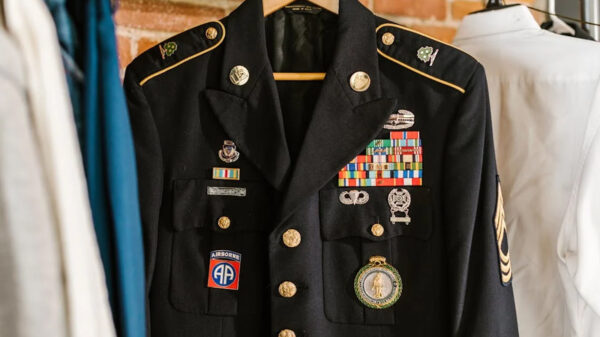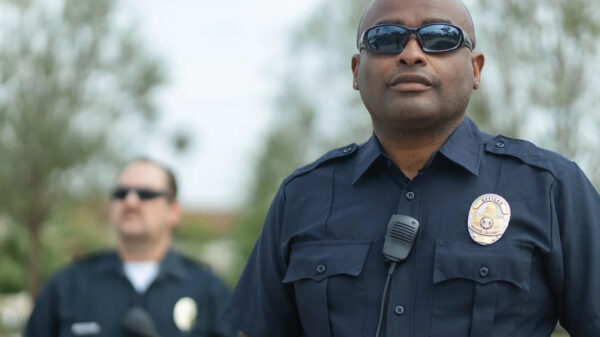“Then I heard the voice of the Lord saying, “Whom shall I send? And who will go for us?” And I said, “Here I am; Send me!” (Isaiah 6:8)
God is always looking for faithful men and women to accomplish His will and purposes on this earth under the power of the Holy Spirit (2 Chronicles 16:9). Both as cops and Christians in general, He has commissioned us to go and go now. “Go” do what?
For us in law enforcement, we are serving in a God-ordained profession (Romans 13:1-4) in which we should be voluntarily responding to His call with a resounding, “Send me!” Then, as Christian officers and Christians in general, God is calling us to answer His call to be commissioned (the Great Commission) to “go” and make disciples (Matthew 28:19-20).
God’s method for building His kingdom and carrying out His will is by using willing, faithful and obedient servants-warriors and servant-leaders who will answer God’s call to be sent out (“send me“) into a hostile and dangerous world. For some, the call may be to the mission field (foreign and domestic). For others it is radically living out and sharing our faith through our jobs, including but not limited to those of us serving in our God-ordained profession of law enforcement. He has missions — calls for service — for us to respond to, but the question is whether or not we will accept “the call.”
Now understand, there is nothing particularly extraordinary about faithful men like Isaiah, Moses, Elijah, Joshua, Caleb, David, etc., at least in and of themselves. James makes that clear when he says:
“Elijah was a man with a nature like ours” (James 5:17).
Isaiah and many others were human just like we are with all our faults, sin, weaknesses and temptations. Yet they and many other men and women (Hebrews 11), were faithful to do what God called them to do. We would do well to consider what it was that made these individuals take God up on His call to serve, to protect, to be used mightily of Him, to suffer for Him (including even their deaths), and to lay aside the passing pleasures of sin in exchange for the glory of God. They were ordinary human beings, but they let God do extraordinary things in their lives under the power of the Holy Spirit. And He wants to do the same with us today.
Isaiah’s commissioning to service gives us some insight into the perspective that is required for a person to come to view their lives as a servant (the Greek word for “minister” is translated simply as “servant”) of God and to sacrifice accordingly. In Isaiah 6, Isaiah received a vision of God seated on His high and exalted heavenly throne. That the train of God’s robe filled the entire temple was a symbol of total power and authority (Isaiah 6:1). Even the seraphim — angels who minister in God’s very throne room — maintained positions of reverence, covering their eyes and their feet while flying so that they wouldn’t touch or see the holiness of God (Isaiah 6:2, Exodus 3:5). They called out to one another saying:
“Holy, holy, holy is the LORD of hosts. The whole earth is full of His glory” (Isaiah 6:3).
The three-fold emphasis of God’s holiness is meant to be emphatic to the highest extent. The only right posture, as the seraphim demonstrated, was to bow, worship, obey, and exalt God. Deference to the King of kings and LORD of hosts (the latter is a military title) was the only thing that made sense. Add to Isaiah’s experience the fact that the foundations of the room were shaking and the room was being filled with smoke, likely symbolizing God’s glory indwelling the entire place. Isaiah couldn’t take it anymore. Being immersed with glory, perfection, and holiness, and he cried out:
“Woe is me, for I am ruined! Because I am a man of unclean lips, And I live among a people of unclean lips; For my eyes have seen the King, the LORD of hosts” (Isaiah 6:5).
In light of God’s perfection and holiness, Isaiah was overwhelmed by his imperfections and sinfulness. It so sickened him that he thought that he was going to die. He recognized that he was unclean and that his people were unclean (sinful). But this is exactly what he needed to see, and so do we. He needed to first see just how holy and wonderful God was before he could see his inadequacies and his need for change and sanctification. Only when we see God for Who He really is can we rightly deal with the true state of our own hearts which God will graciously enable us to do.
In Isaiah’s case, one of the seraphim took a burning coal from the altar before God and touched it to his mouth (Isaiah 6:6). The coal symbolized the holy cleansing of God sanctifying Isaiah and removing his sin (Isaiah 6:7). This encounter with the grace of God had to be so incredibly relieving and moving that it was something he could never forget and something he was eager to share with his people. Likewise, we should have that same sense of awe and reverence in light of what Christ as done for us on the cross.
Now up to this point God had not spoken. Isaiah had only seen visions of Him, but then God asked a question:
“Whom shall I send, and who will go for Us?” (Isaiah 6:8).
The “Us” clearly refers to all three Persons of the Godhead, for the “I” and “Us” are used in the same sentence for the same God (this is an example of the Trinity in Scripture). This simply serves to further convey the wonder, majesty, power, and uniqueness of God. Isaiah’s only reasonable answer was to volunteer himself by responding to God’s call with, “Here I am; send me.”
Take note that God didn’t force Isaiah to volunteer to accept his commission and call. He merely asked if there was any who would go, and Isaiah said, “I’m available for call. Dispatch me!” (Isaiah was no “ROD” — Retired on Duty). Likewise, God doesn’t force us to serve, but He works in our hearts so that we desire to volunteer for Him. We should come to see within ourselves the attitude that Isaiah possessed of willingly taking God up on His commission to serve for the Kingdom (and I’m not just talking about law enforcement).
Isaiah’s commissioning ends with God giving him an “ops briefing” about how hard his calling is going to be in that those to whom he preached by and large wouldn’t listen (Isaiah 1:9-13). Yet, at this point, Isaiah had already committed himself. We are not given any evidence that he wanted to back out, and this is what is so remarkable. He had been so impacted by God’s holiness, the depth of his sinfulness, and the grace of God that he was ready and willing to obey God no matter what. He didn’t put conditions upon his obedience, but he simply said that he would do what God asked of him even though God hadn’t yet told him what that would be. Even when he found out that it would be a difficult calling, he didn’t back down. When we see God as Isaiah saw God, it is hard not to make ourselves available and it is hard to be dissuaded from our callings, no matter how difficult they might be. A right view of God, of ourselves, of our sin, and of His grace is essential for faithfulness to what God has called us to do, be it through law enforcement, the ministry or any other calling.
Too often, we wait for someone else to share the gospel with a loved one, colleague or friend because we don’t want to stir the waters or face rejection. Sometimes we expect our pastor or chaplain (or me — lol) to do all of the “ministry things” while we just show up and support (if even that). This is not God’s way. He wants us to say with Isaiah that we are available and willing to go and do whatever we are called to do. He wants us to have willing hearts and not pass off our responsibilities to someone else. God has created good works for us to do (Ephesians 2:8-10), and it is our responsibility to do them (with the understanding that we are saved FOR good works and not BY good works). We will not be judged one day by what our pastor has done or by what other people do but by what we do in faith (again, without a saving faith in Christ, our so called “good” works will have no meaning and they certainly can’t save us — be sure you take the “Good Person Test” below). But we will give an account for ourselves regardless.
So this brings those of us in law enforcement back to our God-ordained profession. Today, a great many are leaving because of the times we’re now living in (and understand that I’m still serving — just no longer as often in uniform). Many are resisting applying because of what we’re dealing with today. But God’s encouragement and mine is that you stay the course and answer His call. As I’ve shared so often, we can’t even begin to imagine what God can accomplish through “all in” Christians and Christian officers (Is that you?) who are serving and protecting biblically as true servant-warriors for Christ, be it on duty, off duty or “retired.” Will it be easy? Negative. But it will be worth it in ways we won’t fully understand until we reach heaven. God's encouragement and mine is that you stay the course and answer His call. Click To Tweet
Isaiah, an ordinary man, was willing to obey God and step out boldly in faith to let God do extraordinary things through him. Let us pray that we would come to see and value God as Isaiah did — that we will say with Isaiah, “Here I am. Send me.” (and don’t lose sight of the fact that Isaiah ultimately gave his life in service to the Lord — and in a most unpleasant way).
In closing, and in light of my regular “Is that you?” question I often ask, it is vital we understand that police work can’t save us. Rather, God is looking for genuine Christian officers, spouses and all who are willing to answer His call. In fact, coming to salvation in Christ is a mandatory part of His call (just like it is mandatory to pass required tests before we can be hired as cops). So do you have that? Friend, you can, and it is part of my own “Here am I; send me” calling to help you get there! If you’ve yet to surrender in faith and say “yes” in repentance and faith to Christ as Lord and Savior, I implore you to make today “the day of your salvation” (and know I’m here to help).
Michael "MC" Williams is a 35-year law enforcement veteran who recently retired at the rank of Detective/Criminal Investigator. MC continues to write, train and present to law enforcement professionals and others around the country. He's the founder and director of the Centurion Law Enforcement Ministry (www.thecenturionlawenforcementministry.org).












































Jessica Thornton
March 14, 2023 at 8:25 am
Excellent article!!!